[attachment=2118]
看看你大脑如何长出新细胞 You can grow new brain cells. Here's how 12,908,277 views | Sandrine Thuret • TED@BCG London
Neural stem cell researcher 00:01
Can we, as adults, grow new nerve cells? There's still some confusion about that question, as this is a fairly new field of research. For example, I was talking to one of my colleagues, Robert, who is an oncologist, and he was telling me, "Sandrine, this is puzzling. Some of my patients that have been told they are cured of their cancer still develop symptoms of depression." And I responded to him, "Well, from my point of view that makes sense. The drug you give to your patients that stops the cancer cells multiplying also stops the newborn neurons being generated in their brain." And then Robert looked at me like I was crazy and said, "But Sandrine, these are adult patients -- adults do not grow new nerve cells." And much to his surprise, I said, "Well actually, we do." And this is a phenomenon that we call neurogenesis.

01:01
[Neurogenesis]
01:03
Now Robert is not a neuroscientist, and when he went to medical school he was not taught what we know now -- that the adult brain can generate new nerve cells. So Robert, you know, being the good doctor that he is, wanted to come to my lab to understand the topic a little bit better. And I took him for a tour of one of the most exciting parts of the brain when it comes to neurogenesis -- and this is the hippocampus. So this is this gray structure in the center of the brain. And what we've known already for very long, is that this is important for learning, memory, mood and emotion. However, what we have learned more recently is that this is one of the unique structures of the adult brain where new neurons can be generated. And if we slice through the hippocampus and zoom in, what you actually see here in blue is a newborn neuron in an adult mouse brain. So when it comes to the human brain -- my colleague Jonas Frisén from the Karolinska Institutet, has estimated that we produce 700 new neurons per day in the hippocampus. You might think this is not much, compared to the billions of neurons we have. But by the time we turn 50, we will have all exchanged the neurons we were born with in that structure with adult-born neurons.
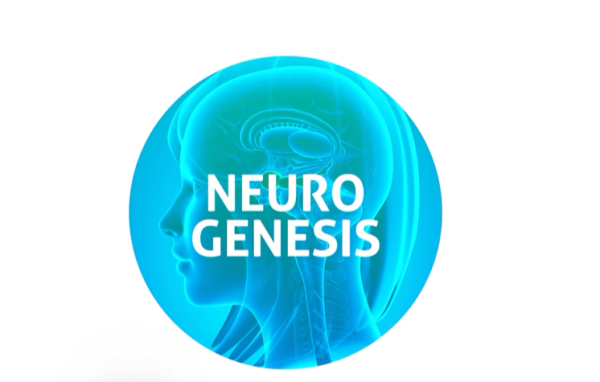
02:43
So why are these new neurons important and what are their functions? First, we know that they're important for learning and memory. And in the lab we have shown that if we block the ability of the adult brain to produce new neurons in the hippocampus, then we block certain memory abilities. And this is especially new and true for spatial recognition -- so like, how you navigate your way in the city.
03:14
We are still learning a lot, and neurons are not only important for memory capacity, but also for the quality of the memory. And they will have been helpful to add time to our memory and they will help differentiate very similar memories, like: how do you find your bike that you park at the station every day in the same area, but in a slightly different position?
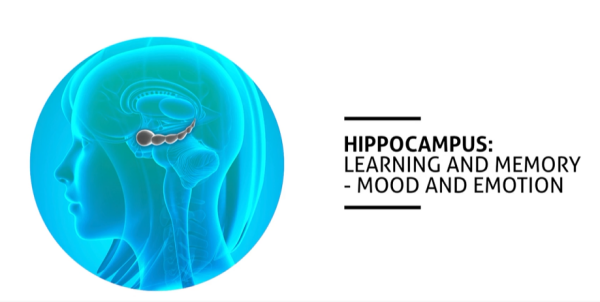
03:40
And more interesting to my colleague Robert is the research we have been doing on neurogenesis and depression. So in an animal model of depression, we have seen that we have a lower level of neurogenesis. And if we give antidepressants, then we increase the production of these newborn neurons, and we decrease the symptoms of depression, establishing a clear link between neurogenesis and depression. But moreover, if you just block neurogenesis, then you block the efficacy of the antidepressant. So by then, Robert had understood that very likely his patients were suffering from depression even after being cured of their cancer, because the cancer drug had stopped newborn neurons from being generated. And it will take time to generate new neurons that reach normal functions.
04:37
So, collectively, now we think we have enough evidence to say that neurogenesis is a target of choice if we want to improve memory formation or mood, or even prevent the decline associated with aging, or associated with stress.
04:56
So the next question is: can we control neurogenesis? The answer is yes. And we are now going to do a little quiz. I'm going to give you a set of behaviors and activities, and you tell me if you think they will increase neurogenesis or if they will decrease neurogenesis. Are we ready? OK, let's go.
05:20
So what about learning? Increasing? Yes. Learning will increase the production of these new neurons.
05:28
How about stress? Yes, stress will decrease the production of new neurons in the hippocampus.
05:36
How about sleep deprivation? Indeed, it will decrease neurogenesis.
05:42
How about sex? Oh, wow!
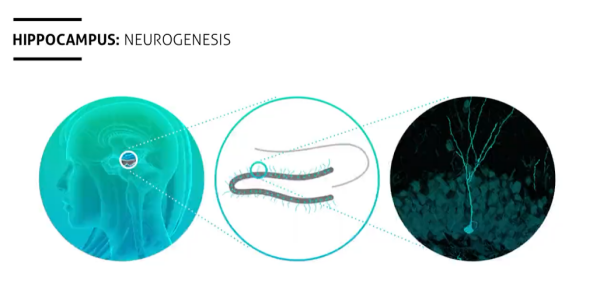
05:45
(Laughter)
05:46
Yes, you are right, it will increase the production of new neurons. However, it's all about balance here. We don't want to fall in a situation --
05:55
(Laughter)
05:57
about too much sex leading to sleep deprivation.
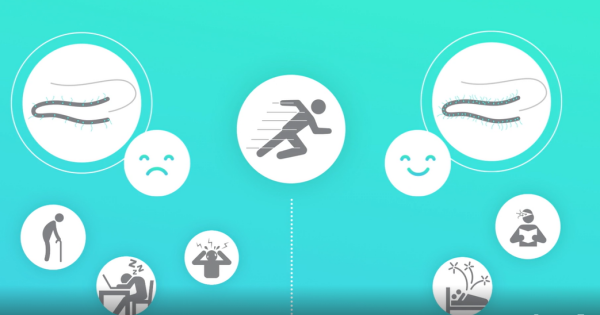
05:59
(Laughter)
06:02
How about getting older? So the neurogenesis rate will decrease as we get older, but it is still occurring.
06:14
And then finally, how about running? I will let you judge that one by yourself.
06:21
So this is one of the first studies that was carried out by one of my mentors, Rusty Gage from the Salk Institute, showing that the environment can have an impact on the production of new neurons. And here you see a section of the hippocampus of a mouse that had no running wheel in its cage. And the little black dots you see are actually newborn neurons-to-be. And now, you see a section of the hippocampus of a mouse that had a running wheel in its cage. So you see the massive increase of the black dots representing the new neurons-to-be.
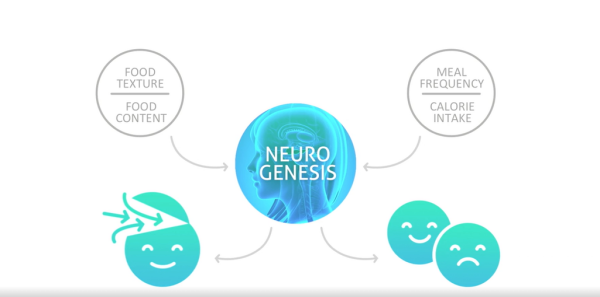
06:56
So activity impacts neurogenesis, but that's not all. What you eat will have an effect on the production of new neurons in the hippocampus. So here we have a sample of diet -- of nutrients that have been shown to have efficacy. And I'm just going to point a few out to you: Calorie restriction of 20 to 30 percent will increase neurogenesis. Intermittent fasting -- spacing the time between your meals -- will increase neurogenesis. Intake of flavonoids, which are contained in dark chocolate or blueberries, will increase neurogenesis. Omega-3 fatty acids, present in fatty fish, like salmon, will increase the production of these new neurons. Conversely, a diet rich in high saturated fat will have a negative impact on neurogenesis. Ethanol -- intake of alcohol -- will decrease neurogenesis. However, not everything is lost; resveratrol, which is contained in red wine, has been shown to promote the survival of these new neurons. So next time you are at a dinner party, you might want to reach for this possibly "neurogenesis-neutral" drink.
08:09
(Laughter)
08:12
And then finally, let me point out the last one -- a quirky one. So Japanese groups are fascinated with food textures, and they have shown that actually soft diet impairs neurogenesis, as opposed to food that requires mastication -- chewing -- or crunchy food.
08:30
So all of this data, where we need to look at the cellular level, has been generated using animal models. But this diet has also been given to human participants, and what we could see is that the diet modulates memory and mood in the same direction as it modulates neurogenesis, such as: calorie restriction will improve memory capacity, whereas a high-fat diet will exacerbate symptoms of depression -- as opposed to omega-3 fatty acids, which increase neurogenesis, and also help to decrease the symptoms of depression. So we think that the effect of diet on mental health, on memory and mood, is actually mediated by the production of the new neurons in the hippocampus. And it's not only what you eat, but it's also the texture of the food, when you eat it and how much of it you eat.
09:33
On our side -- neuroscientists interested in neurogenesis -- we need to understand better the function of these new neurons, and how we can control their survival and their production. We also need to find a way to protect the neurogenesis of Robert's patients. And on your side -- I leave you in charge of your neurogenesis.
09:55
Thank you.
09:56
(Applause)
10:02
Margaret Heffernan: Fantastic research, Sandrine. Now, I told you you changed my life -- I now eat a lot of blueberries.
10:09
Sandrine Thuret: Very good.
10:11
MH: I'm really interested in the running thing. Do I have to run? Or is it really just about aerobic exercise, getting oxygen to the brain? Could it be any kind of vigorous exercise?
10:24
ST: So for the moment, we can't really say if it's just the running itself, but we think that anything that indeed will increase the production -- or moving the blood flow to the brain, should be beneficial.
10:39
MH: So I don't have to get a running wheel in my office?
10:42
ST: No, you don't!
10:43
MH: Oh, what a relief! That's wonderful. Sandrine Thuret, thank you so much.
10:47
ST: Thank you, Margaret.
10:48
(Applause)
Zhiting Chen, Translator
Geoff Chen, Reviewer
00:01
我们,作为成人,还能生长 新的神经细胞吗? 这个问题还未完全清晰, 因为这还是新的研究领域。 比方说,我跟我的同事罗伯特说, 罗伯特是一名肿瘤学家, 他告诉我, “桑德琳,这很令人疑惑。 我的一些病人,即使被告知 他们的癌症已治愈, 仍有抑郁的症状。” 我回答道, “嗯,在我看来这是可以解释的。 你给病人开的, 用以阻止癌细胞增生的药 同时也阻止了他们大脑中 生长出新的神经元。” 罗伯特看着我,仿佛我疯了似的, “但是桑德琳,他们是成年的病人-- 成人不会生长新的神经细胞。” 非常惊讶,我说, “事实上,我们可以。” 这个现象我们称之为 神经生成。
01:01
[神经生成]
01:03
罗伯特不是一名脑神经科学家, 当他在医学院上学的时候 并没有学到我们现在所知道的 成人大脑能够生成新的神经细胞。 因此罗伯特, 作为一名好医生, 想要到我的实验室来 更深层的了解一下这个研究。 我向他展示了 大脑最令人兴奋的部分 有关神经生成的活动-- 这是海马体。 就是大脑中心这个灰色的结构。 我们早已得知, 这对学习,记忆,情绪和情感 很重要。 然而,我们进来新研究出的是 这是一个对成人大脑来说 很特别的结构, 这里能够生成新的神经元。 当我们切开海马体 并放大, 你所看到的这些蓝色物质 就是成年老鼠大脑中 新生张出来的神经元。 在人类大脑中-- 我来自卡罗林斯卡学院的同事 Jonas Frisén说, 人类每天生长约700个新的神经元 在海马体内。 你可能认为这并不是很多, 因为人体有数十亿神经元。 但是当我们快到50岁的时候, 我们出生时所有的神经元 都会变成那个结构中 成人时期生长出的神经元。
02:43
为什么新的神经元是重要的 它们有怎样的作用呢? 首先,我们指导它们对于 学习和记忆功能来说很重要。 在实验室中,我们发现 如果我们阻止了成人大脑中 海马体生长新的神经元的功能, 那意味着我们也阻止了 某些记忆能力。 这对空间识别感 非常重要-- 就像,你如何在城市中活动。
03:14
我们仍在学习, 神经元对于记忆能力, 以及记忆的质量来说 非常重要。 他们能够帮助我们的记忆 加入时间概念 他们也会帮助我们区分 非常相近的记忆,比如: 如何寻找你的自行车 你每天都将它停在 车站附近的同一块地方, 但是在这片地不同的位置?
03:40
对我的同事罗伯特来说 更有意思的是 我们正在做有关神经生成 和抑郁的研究。 在这个关于抑郁的动物模型, 我们可以看到 它的神经生成在较低的水平, 如果给牠们服用抗抑郁剂, 我们增加了新生的神经元, 于是抑郁的症状就减轻了, 在细胞生成和抑郁症状间 建立了清晰地联系。 此外,如果你阻止了细胞生成, 那你也就阻止了抗抑郁剂的功效。 那时,罗伯特理解到 他的病人们很有可能会 遭受抑郁的症状 即使在癌症治愈以后, 因为抗癌药物阻止了 身体新的神经元的生成。 那需要一些时间 生成新的神经元 让它达到正常的运作。
04:37
总的来说, 我想我们有足够的证据 来表明细胞生成是一个目标方法, 如果我们想要提高记忆力 或是提高情绪, 或是防止衰老, 或是抗击压力。
04:56
下一个问题就是: 我们能够控制神经生成吗? 答案是,是。 我们现在进行一个小问答。 我会给你们一组行为或是活动, 你们来判断 这些能否促进细胞新生 或是这些会降低细胞生成。 准备好了吗? 现在开始。
05:20
学习? 增长? 是的。 学习能够提高神经细胞的生成。
05:28
压力? 是的,压力会降低海马体内 神经细胞的生成。
05:36
那么睡眠匮乏呢? 确实,它会降低神经生成。
05:42
性爱呢? 哇!
05:45
(笑声)
05:46
是,你们是对的,它能促进 神经新生。 然而,这一切都有关平衡。 我们不希望出现这样的情况--
05:55
(笑声)
05:57
太多的性爱导致睡眠匮乏。
05:59
(笑声)
06:02
年龄增长? 细胞生成率会随着我们变老而降低, 但它仍会生成。
06:14
最后,跑步? 这要看你们各自的情况自己决定。
06:21
这是第一个研究 是我在索尔克研究所的导师 Rusty Gage做的, 显示出环境对于 生长新的神经有影响。 这幅图片是老鼠的海马体, 它的笼子里没有滚动跑轮。 黑色的小点点 是将要新生的神经元。 现在,这幅是老鼠的海马体 它的笼子里有滚动跑轮。 你可以看到数量巨大的 黑色小点点显示出 它的神经元生成状况。
06:56
所以,活动会影响神经生成, 但并不只是如此。 你吃的东西会影响到 海马体生长新的神经元。 这里我们有一个健康饮食的样本-- 这些有功效的营养物质。 我要指出一些来: 卡路里保持在20%-30% 会增强细胞生长。 间歇地断食-- 在餐与餐之间空下时间-- 会提高神经细胞新生。 摄入黄酮类物质, 在黑巧克力或蓝莓中, 会提高神经细胞新生。 欧米伽-3 脂肪酸, 在脂质鱼中,比如三文鱼, 会提高神经细胞新生率。 相对的,那些高饱和脂肪 会对神经生成有不好的影响。 乙醇--酒精中摄取-- 会降低神经新生。 然而,并不是所有都不好, 白藜芦醇,红酒中的物质, 就能够促进新生神经的存活率。 下次你再去晚宴派对的时候, 你也许想要喝这种 可能“神经新生——中立”饮品。
08:09
(笑声)
08:12
最后, 让我在说最后一点—— 古怪的一点 日本人着迷于食物的质感, 软质饮食减少神经生成, 相对于那些需要咀嚼,或是脆的食物。
08:30
这些数据, 我们用于观察细胞水平的, 都是通过动物模型完成。 但这样的饮食同样也给与了人类参与者, 我们能看到的是 饮食调节记忆和情绪 和它调节神经生成同样的方向, 比如:卡路里限制会 提高记忆能力, 反之,一个高脂肪的饮食会 加剧抑郁的症状。 相反的,欧米伽-3脂肪酸, 会提高神经生成, 同时也会帮助减缓 抑郁的症状。 因此我们认为饮食的效用 在神经健康、记忆和情绪, 是通过在海马体内 制造新的神经元间接完成的。 不只是你吃什么, 还有食物的质地, 什么时候吃 吃了多少来决定。
09:33
在我们神经科学家这边-- 有兴趣的神经生成-- 我们需要更好的了解 这些新生神经的功能, 以及我们如何控制 它们的存活率和制造情况。 我们同样也要寻找一个方法 来保护罗伯特病人的神经生成。 在你们这边-- 请你们自己决定自己的细胞生成。
09:55
谢谢
09:56
(鼓掌)
10:02
玛格丽特·赫夫南: 太精彩的研究,桑德琳。 现在,我告诉你你改变了我的生活-- 我现在开始吃大量的蓝莓。
10:09
桑德琳·苏瑞:这太好了。
10:11
玛格丽特:我很好奇 关于跑步的那个讨论。 我需要跑步吗? 还是指我们要做有氧运动, 让大脑吸氧? 可以是任何激烈运动吗?
10:24
桑德琳:此时此刻, 我们无法准确说明 是否只能跑步, 但我想任何事 能够提高生成-- 或是血液移动到大脑的, 应该都是有益的。
10:39
玛格丽特: 那我不需要在我的办公室放一个转轮了?
10:42
桑德琳:不,你不需要!
10:43
玛格丽特:真是松了口气!太精彩了。 桑德琳·苏瑞,非常感谢你。
10:47
桑德琳:谢谢你,玛格丽特。
10:48
(鼓掌)
Sandrine Thuret: You can grow new brain cells. Here's how | TED Talk